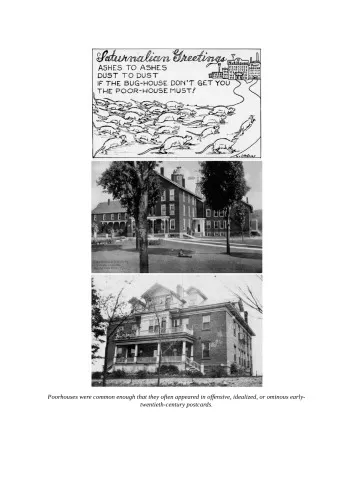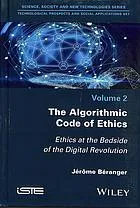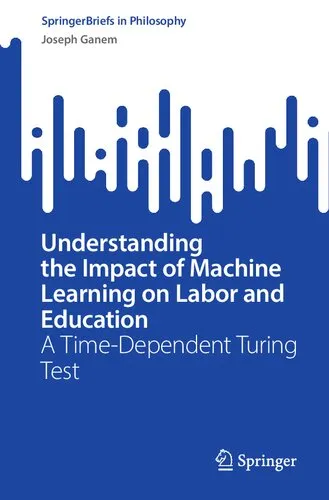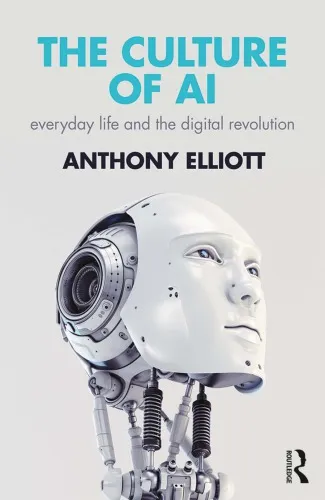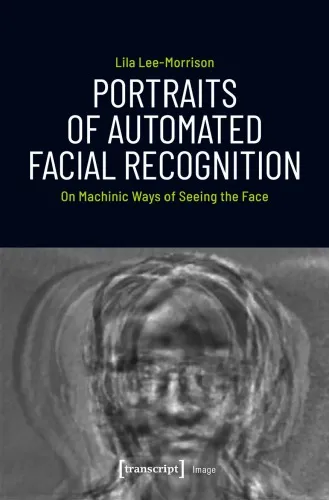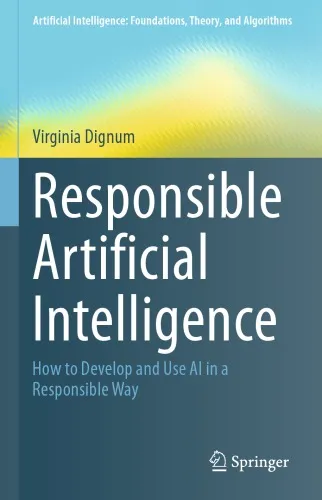Automating Inequality: How High-Tech Tools Profile, Police, and Punish the Poor
4.5
بر اساس نظر کاربران

شما میتونید سوالاتتون در باره کتاب رو از هوش مصنوعیش بعد از ورود بپرسید
هر دانلود یا پرسش از هوش مصنوعی 2 امتیاز لازم دارد، برای بدست آوردن امتیاز رایگان، به صفحه ی راهنمای امتیازات سر بزنید و یک سری کار ارزشمند انجام بدینکتاب های مرتبط:
مقدمهای بر کتاب "Automating Inequality: How High-Tech Tools Profile, Police, and Punish the Poor"
کتاب "Automating Inequality" نوشته ویرجینیا ایوبنکس به بررسی نقدی ابزارهای تکنولوژیک در فرآیندهای مدیریتی و اجتماعی، و تأثیر آنها بر فقر و نابرابری میپردازد. این کتاب یک نگاه دقیق به چگونگی استفاده از سیستمهای دیجیتالی برای نظارت و کنترل زندگی فقرا در جامعه ارائه میدهد.
خلاصهی مفصل کتاب
ویرجینیا ایوبنکس در این کتاب نشان میدهد که چگونه سیستمهای دیجیتالی، بهطور خاص ابزارهای هوش مصنوعی و الگوریتمهای پیشبینی، حضور دارند تا کنترل بیشتری بر روی اقشار فقیر ایجاد کنند. او استدلال میکند که این تکنولوژیها به جای کاهش فقر و نابرابری، آنها را عمیقتر میکنند. داستانهای واقعی از افراد و خانوادههایی که تحت تأثیر این سیستمها بودهاند، روایت میشوند تا نتایج ناگوار و انسانی استفاده نادرست از تکنولوژی را نمایش دهند.
نکات کلیدی
- تکنولوژیهای پیشرفته توانایی دارند تا نابرابریهای موجود را تقویت کنند.
- Implementation نادرست این تکنولوژیها میتواند به افزایش فشار بر اقشار ضعیف منجر شود.
- نیاز به هوشیاری و نظارت دائمی بر فرآیندهای اتوماسیون اجتماعی و مدیریتی احساس میشود.
نقلقولهای معروف از کتاب
در دنیایی که تکنولوژیها قضاوتها را بر پایه دادهها تنظیم میکنند، انسانیت و اخلاق بیش از هر زمان دیگری به خطر میافتد.
فقر یک مشکل تکنولوژیک نیست که با الگوریتمها حل شود؛ بلکه یک چالش اجتماعی است که نیازمند همدلی و درک انسانی است.
چرا این کتاب مهم است
کتاب "Automating Inequality" بهطور خاص اهمیت زیادی دارد زیرا به زمانهای اشاره دارد که در آن تکنولوژی به بخش جدا نشدنی از زندگی روزمره تبدیل شده است. این اثر به ما یادآوری میکند که باید نسبت به موقعیتهای اجتماعی و انسانی استفاده از این ابزارهای مدرن هوشیار باشیم. ایوبنکس با ارائه تحلیلهای دقیق و جامع نشان میدهد که چگونه نیاز است تا دستاوردهای تکنولوژیک را به دقت بررسی کنیم تا از پتانسیل آنها برای ارتقاء عدالت و برابری استفاده شود.
Book Summary
"Automating Inequality: How High-Tech Tools Profile, Police, and Punish the Poor" delves into the intricate and often opaque world of automated systems and their significant impact on marginalized communities within the United States. Authored by Virginia Eubanks, the book provides a critical examination of how digital technology and data-oriented systems, designed ostensibly for efficiency and equity, often exacerbate existing social inequalities. Through a series of investigative narratives, Eubanks uncovers how these systems, deployed in sectors like welfare, homelessness services, and child protective services, inadvertently uphold systemic biases and control society's most vulnerable individuals.
Eubanks takes readers through three significant case studies: Indiana’s attempt to automate welfare eligibility, Los Angeles' implementation of the Homeless Management Information System, and Pennsylvania’s use of predictive algorithms in child protective services. Through these examples, she argues that such technologies, rather than eliminating bias, encode and solidify new forms of discrimination, subjecting the poor to increased surveillance, bureaucratic hurdles, and punitive control measures.
Key Takeaways
- The automation of social service assessments often leads to systems that perpetuate and even exacerbate existing social inequalities.
- Technological solutions can fail to account for the nuanced needs of marginalized communities, instead offering one-size-fits-all answers that rarely benefit those in need.
- The deployment of automated tools for public assistance frequently involves inadequate transparency and accountability, limiting the public's ability to challenge decisions made by such systems.
- Effective and responsible technology use in social service administration requires community engagement, equitable design, and rigorous oversight.
Famous Quotes from the Book
"The poor are the testing ground for surveillance tools that will eventually be used on everyone."
"Automated decision-making isn’t just about efficiency. It’s about power. It transforms how power is distributed in our society."
Why This Book Matters
"Automating Inequality" matters because it shines a light on the unintended consequences of deploying technology without considering the social dynamics it interferes with. As societies increasingly rely on algorithmic systems for decision-making, recognizing their potential to cement systemic inequalities becomes imperative. Eubanks’ well-researched arguments and emotional narratives show that technology is not neutral; rather, it can mirror and exacerbate the very prejudices and issues it purports to solve. This cautionary tale implores us to reflect on our reliance on technology and to strive for systems that genuinely promote equity and justice, rather than perpetuating cycles of disadvantage and inequality.
دانلود رایگان مستقیم
You Can Download this book after Login
دسترسی به کتابها از طریق پلتفرمهای قانونی و کتابخانههای عمومی نه تنها از حقوق نویسندگان و ناشران حمایت میکند، بلکه به پایداری فرهنگ کتابخوانی نیز کمک میرساند. پیش از دانلود، لحظهای به بررسی این گزینهها فکر کنید.
این کتاب رو در پلتفرم های دیگه ببینید
WorldCat به شما کمک میکنه تا کتاب ها رو در کتابخانه های سراسر دنیا پیدا کنید
امتیازها، نظرات تخصصی و صحبت ها درباره کتاب را در Goodreads ببینید
کتابهای کمیاب یا دست دوم را در AbeBooks پیدا کنید و بخرید
1256
بازدید4.5
امتیاز50
نظر98%
رضایتنظرات:
4.5
بر اساس 0 نظر کاربران
"کیفیت چاپ عالی بود، خیلی راضیام"
